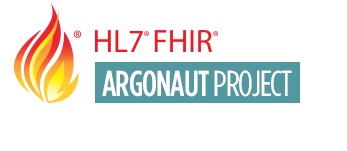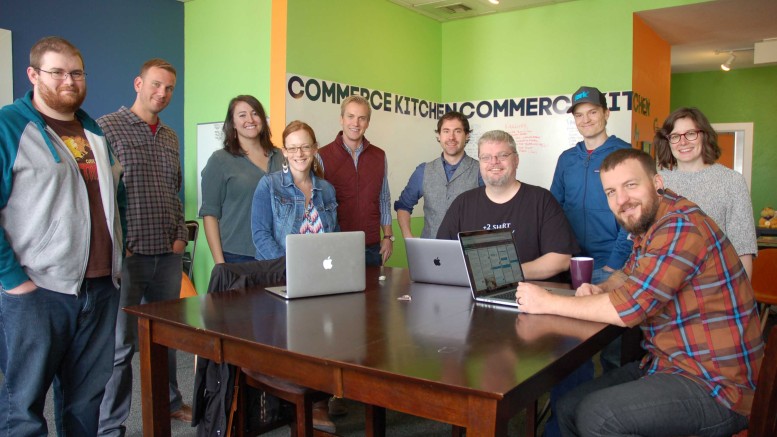DENVER – Commerce Kitchen, a software development firm with over thirteen years of experience in high security industries like banking and healthcare, has worked with digital health companies and hospital systems long enough to have a sense of what the future holds for its clients.
When it comes to digital health, the firm has a foot in both worlds, collaborating with everyone from early stage startups to major healthcare organizations like Davita, Rocky Mountain Cancer Center, US Oncology, and Porter Adventist Hospital.
“We’re helping them spin up ideas within their larger enterprise ecosystems,” Tynan Szvetecz, the CEO and founder of Commerce Kitchen, explained while describing his firm’s role in helping its corporate clientele answer the question, How does an established organization develop a startup to drive a new idea?
According to Szvetecz, Commerce Kitchen’s experience with major healthcare providers allows the firm to better advise its smaller clients on issues like penetrating the healthcare system and scalability.
“There are a million different directions for a startup to go in, which makes it hard to choose a good path. We help startups find a good path for them, and then work with them every step of the way.”
When matched with its involvement in the Argonaut Project, a national effort that aims to “enable information sharing for electronic health records,” Commerce Kitchen’s holistic understanding of the healthcare system reveals it as an established software development company committed to remaining in the vanguard of digital health innovation.
This unique position has permitted the firm to develop a bold vision for the future of US healthcare that has everything to do with interoperability.
An Early Adventure in Interoperability
Commerce Kitchen first encountered the challenge of healthcare interoperability while working with the emergency physicians at Porter Adventist Hospital. Led by Dr. Mark Prather, the CEO of Dispatch Health, these doctors had banded together to develop a software platform that could accurately assess physician performance.
“If you tell a doctor that you want them to shorten the time it takes them to get a sick or injured patient to a bed from the ER,” Szvetecz explained, “even though they’ll probably agree with you, they may not have the time or energy to focus on changing that metric.”
“However, if you give them real-time data on how they’re performing against their peers, that tends to motivate them. Doctors are naturally competitive.”
According to Szvetecz, Dr. Prather and his team spent two months modeling the platform in Excel spreadsheets before they developed it, an approach that helped them identify the data they would need to effectively represent physician performance.
Upon realizing they would have to collect data from their electronic health record, their shift scheduling program, and their billing software – none of which normally shared information with one another – Dr. Prather’s team contacted Commerce Kitchen.
“This was an early adventure in the interoperability game for us,” Szvetecz admitted. “We ended up fusing data from all of these platforms into a secure, web-enabled app.”
Having successfully tested the platform with a group of 120 physicians inside the Porter Adventist Hospital system, Dr. Prather and his team are currently exploring ways to deploy it at the national level.
The First Steps Towards The New System

Commerce Kitchen is the only Colorado-based software developer currently participating in the Argonaut Project.
When asked about the future of digital health technology, Szvetecz foresees healthcare providers leaving behind the monolithic EHR systems they interface with today, and embracing a variety of different apps.
“What we envision is a structure that is not constrained by the internal IT systems that these big hospitals currently have. The new systems will be much more cloud-based, modular, and interdependent, which will allow for more flexibility and adaptability.”
At the heart of this new system is human-centered design and API, which will allow physicians to more easily access critical information, while enabling different programs to communicate with one another and share data.
But Szvetecz doesn’t believe the EHRs of today will disappear entirely.
“It’s difficult to see a future where Epic or Cener is going to go away. And to their credit they’re beginning to realize that they need to adapt and integrate with a lot of these new digital health apps.”
In an effort to stay ahead of the trend, Commerce Kitchen is taking part in the Argonaut Project, which has brought together EHR vendors and healthcare providers alike to enable healthcare data to be sent and received by software programs of all kinds.
“Thanks to the Argonaut Project, we’re going to have a lot of eyes on the problem of how to get different apps to work together so that they can interface with not only the healthcare system but patients too.”
The Promise of Interoperability
While Szvetecz admits that his vision of healthcare interoperability is still five to ten years out, he sees several immediate benefits coming from the current push.
“Instead of having one big monolithic solution to everyone’s problems, we’re beginning to have many different companies that can solve one problem really well,” he explained, before going on to describe the ability of interoperable systems to leverage the specific expertise of each company.
“The idea is if you can build bridges between them, then you can do something truly exceptional and truly change the system. That’s the promise.”
Like the coverage that CyberMed News provides? Follow us on Twitter, LinkedIn, and Facebook to make sure you keep up to date on the most recent developments in Colorado’s digital health community.






Be the first to comment on "Commerce Kitchen & The Future of Interoperability in Healthcare"